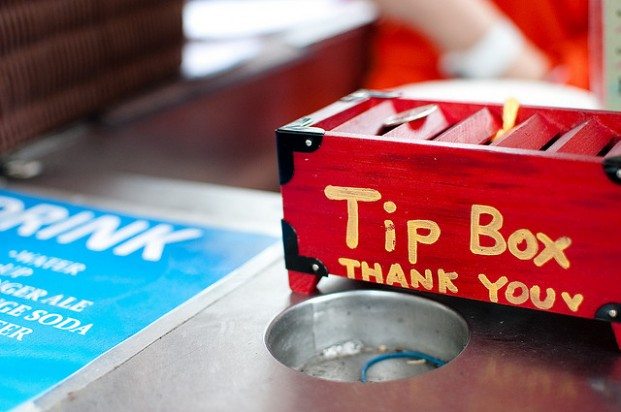Your Guide To Holiday Tipping
Holiday tipping can be a jungle of guilt, obligation and confusion. For those who live in big cities such as New York, the list of people to tip at the end of the year seems to grow continually. Regardless of the stress commonly associated with giving tips, it's important to remember that tips are a way of thanking the people who make your life more convenient. If the concept of dispensing tips makes you uncomfortable, think of it as a holiday gift.

A Consumer Reports survey from 2010 showed that the recession didn't effect the rate of holiday tipping, though the majority of survey respondents didn't dole out tips to begin with.
While you most likely already tip waiters and manicurists regularly, the end of the year is a time to show appreciation for those with whom you've built an amicable relationship or those who don't usually command a gratuity. Service people themselves are often reticent about the amount in tips they've received, though it's commonly held that cash is better than check, with the crispest bills you can find. Discourse among friends or neighbors can be limited as well, if people are self-conscious about appearing cheap.
Whom should you tip, and how much?
Emily Post has a comprehensive chart of people you might want to keep in mind. Here's a condensed list of service workers you might see regularly:
- Nanny, babysitter or pet-sitter: cost of one visit
- In-home caregiver: if company allows cash gifts, up to one week's pay
- Barber, hair stylist or manicurist: cost of one visit
- Newspaper carrier: $10-30
- Yard maintenance crew: $20-50
Are there alternatives to cash?
It can be rude to give cash to somebody who is considered a professional, such as a teacher or in-home caregiver. Additionally, some companies, such as USPS, prohibit their employees from accepting cash gifts. In those cases, handmade gifts (with allergies factored in), gift cards or handwritten cards are appropriate. My mother, a preschool teacher, receives a surprisingly vast amount of Christmas cards every year from her students and enjoys displaying them around the tree. (We always appreciated the array of coffee shop gift cards as well.)
People who should be given (small) gifts instead of cash would be school teachers, extracurricular (such as piano) teachers, coaches, assistants and secretaries. Gifts.com has a guide that helps discern whom to give what.
Ultimately, holiday tipping is what you make of it, and you're free to give whatever is comfortable for you and your recipient. Just remember to stay within your budget when factoring in everyone's gifts this season!
